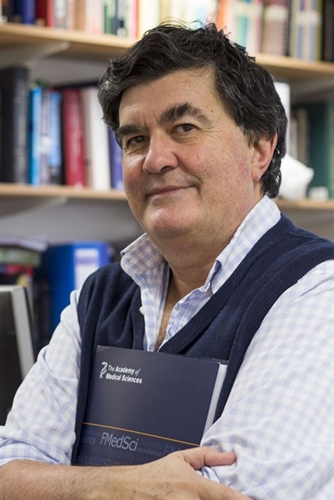A campaign is being waged to suppress the views of those who have expressed opposition to matauranga Maori (Maori knowledge) being accorded the same academic status as the other general sciences in the school science curriculum. One of the targets, Professor Garth Cooper, is also part-Maori.
IT IS UNFORTUNATE that many on the liberal left have decided that freedom of speech is an 'optional extra' to be discarded when it suits them. They have disregarded the wise words of revolutionary socialist Rosa Luxemburg who advised that freedom of speech is meaningless 'unless it means freedom for the person who thinks differently'.
Similarly they have decided they can ignore both Thomas Paine and John Stuart Mill who said freedom of speech is not just about the right of the person who speaks to be heard, it is also the right of everyone in the audience to hear.
The latest dismal attempt to suppress views that are deemed to be 'unacceptable' in the current political climate is the campaign that has been mounted against the seven academics who have dared to challenge that matauranga Maori (Maori knowledge) should be given equal standing in the school science curriculum.
Their 'crime' has been to argue, legitimately, that matauranga Maori should not be accorded the same status as the traditional science disciplines such as biology and physics. In an letter to the Listener and published in July they argued that 'Indigenous knowledge is critical for the preservation and perpetuation of culture and local practices, and plays key roles in management and policy,' but concluded that, 'In the discovery of empirical, universal truths, it falls far short of what we can define as science itself.'
This view has been attacked by an array of organisations dominated by what can be defined as the professional managerial class. Professor Catherine Liu has described this class as 'convinced of its own unassailable position as comprising the most advanced people the earth as ever seen that assumes that it has the ability to do ordinary things in extraordinary, fundamentally superior and more virtuous ways.'
The views of the seven professors has been denounced by the Royal Society, the New Zealand Association of Scientists, and the Tertiary Education Union (which many academics belong to) as well as by Labour-friendly academics Siouxsie Wiles and Shaun Hendy.
Wiles and Hendy went as far as to co-author an open letter announcing they 'categorically' disagreed with the professors’ views. Wiles also called for other academics to put their names to the letter tweeting 'Calling all academics in Aotearoa New Zealand. Add your name to the open letter if you are also appalled by that letter claiming to defend science published last week in the NZ Listener. It’s caused untold harm and hurt & points to major problems with some of our colleagues.'
Now The Royal Society of New Zealand (RSNZ) - which has already criticised the Listener letter- is being asked to expel the three society fellows who contributed to the letter: medical scientist Garth Cooper and philosopher Robert Nola, along with psychologist Michael Corballis, who initiated the letter. Professor Corballis, who won the Rutherford Medal – RSNZ’s highest honour – in 2016, died recently.
There were initially five anonymous complaints lodged against the three but when the Royal Society asked them to identify themselves, three suddenly dropped out. There have been allegations made that Cooper, Nola and Corballis have also been the victims of petty academic grievances and rivalries.
New Zealand’s Education Act says that academics and students have the freedom to 'question and test received wisdom, put forward new ideas and state controversial or unpopular opinions' within the law. But the two remaining complainants allege that the authors have committed multiple breaches of the RSNZ Code of Professional Standards and Ethics – including failing to 'behave with…integrity and professionalism', 'claim competence commensurate with their expertise' or 'take reasonable…precautions to protect vulnerable people'.
The whole affair has attracted international attention, with Toby Hill in The Spectator asking 'Why punish a scientist for defending science?'
Jerry Coyne, a professor in the Department of Ecology and Evolution at the University of Chicago, has commented :
'Those who signed the letter objecting to the Listener letter are either completely ignorant of science (which I don’t believe), or are flaunting their virtue. It’s true that Maori have often been mistreated by colonials, and NZ has tried to rectify this inequality over the years, as it should. But one way not to rectify it is to pretend that Maori 'knowledge' is really 'true' in the scientific sense. To teach that in the schools, as is being proposed, is a recipe for continuing scientific ignorance. It is the same as a letter saying that fundamentalist Christian 'ways of knowing', like creationism, should be taught alongside evolutionary biology in science class.'
One of the many disgraces of this campaign to suppress views contrary to current political fashion and cancel their proponents in the process, is that one of the targets, Professor Garth Cooper, is part-Maori himself. He has devoted much of his career to helping young Maori and has told Times Higher Education that he estimates that he has 'provided substantive input and career guidance to as many as 5000 young Maori over 30+ years.'
Meanwhile the eminent British evolutionary biologist Richard Dawkins has waded into the controversy, boots and all. Not one for pulling his punches, Dawkins has tweeted : 'Creationism is still bollocks even if it is 'Indigenous Ways of Knowing' bollocks. Doubtless of great anthropological and aesthetic interest but not science and not true. SHAME on the NZ Royal Society.'



0 comments:
Post a Comment
Comments are moderated.